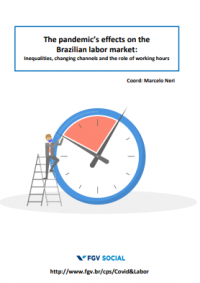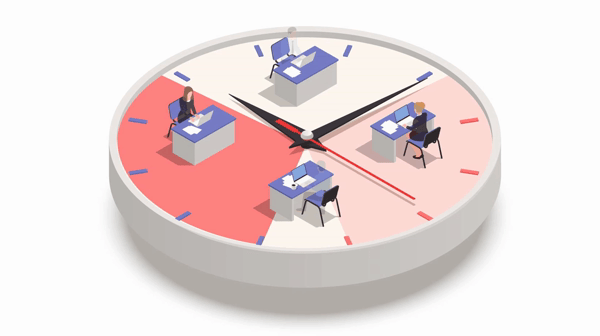
The pandemic’s effects on the Brazilian labor market: Inequalities, changing channels and the role of working hours
About the research:
After the first complete quarter under the effects of the Covid-19 pandemic in Brazil (i.e. the months of April, May and June), mean individual labor income, including formal and informal workers and non-working population, has fallen by 20.1% while its inequality based on the Gini index has risen by 2.82%. Both level and changes of these two estimates reached new negative records in their respective time series initiated in 2012.
The labor income of the poorest half of the distribution has diminished by 27.9% against a 17.5% fall for the richest 10% Brazilians. The main losers among the social groups were the indigenous people (-28.6%), the illiterate (-27.4%) and the youngsters between 20 and 24 years old (-26%). All Brazilians States and their respective capital cities have also presented reductions in their mean labor earnings. Pernambuco and Recife were respectively the most affected locations.
The reduction of 20.1% on mean individual labor income was mainly led by a fall of 14.34% on working hours, in addition to a contraction of 9.9% on the occupation rate. A counterfactual empirical estimate suggests that the occupation rate would have been reduced by 22.8% if the workings hours had been kept constant. This “attenuation-effect” derived from reducing working hours thus protected more jobs from being lost, in other words, it has led to a socialization of the pandemic’s negative effects in addition to avoiding more permanent scars in the labor market related to job losses. This jobs-saving process was more intense for women as well as for poorest private employees, facts that are consistent with the implementation of policies that partially suspended jobs contracts after the Covid-19 crisis reached the country.
Site em Português / Site in Portuguese 
I Executive Summary
I Appendix (In Portuguese)
I Map - Brazilian States - Labor Data - (%) Changes between 2020.1 and 2020.2
I Map - Capitals - Labor Data - (%) Changes between 2020.1 and 2020.2
| Contact: marcelo.neri@fgv.br / fgvsocial@fgv.br / +5521 3799-2320





